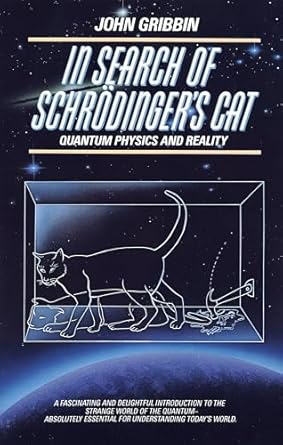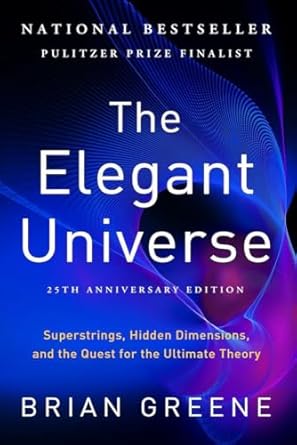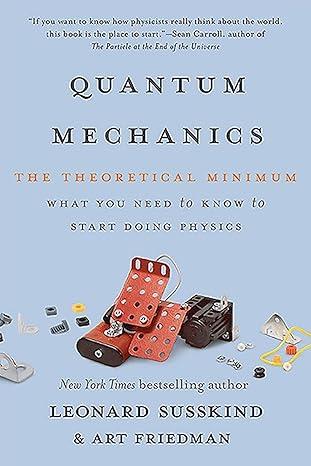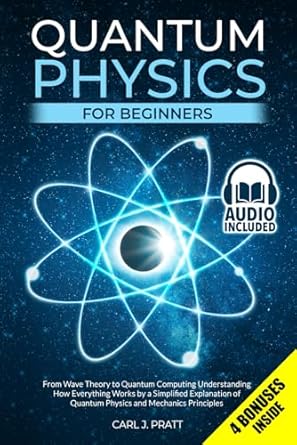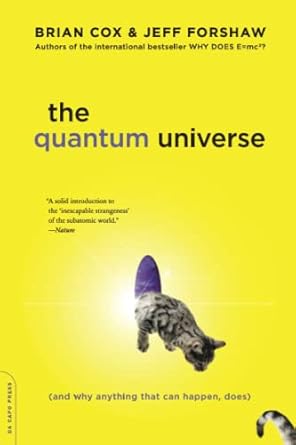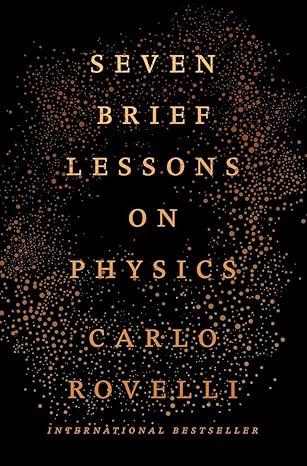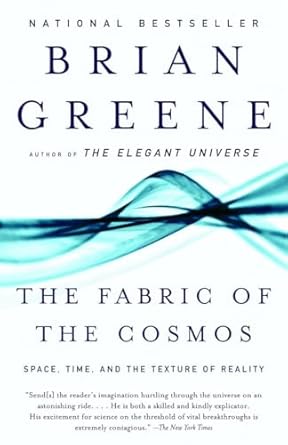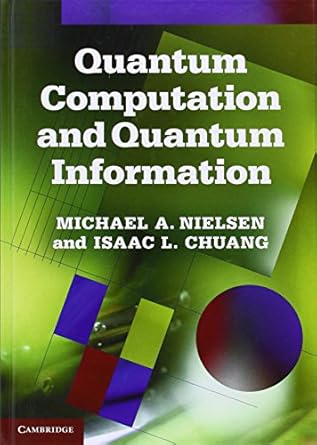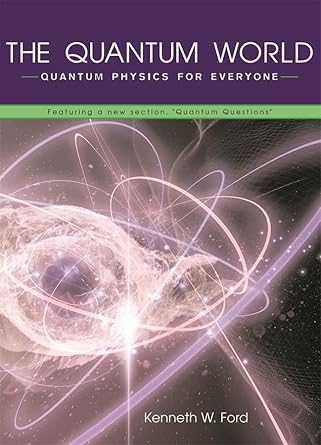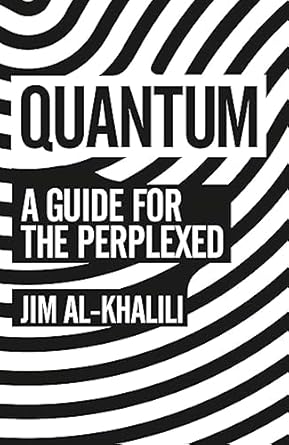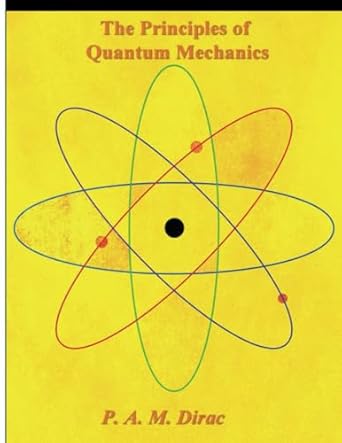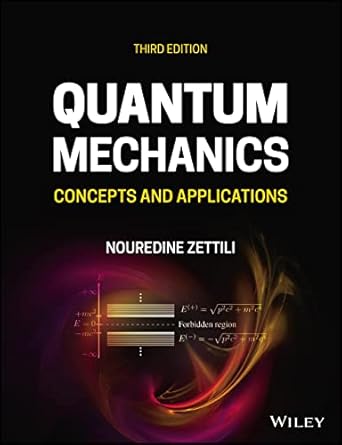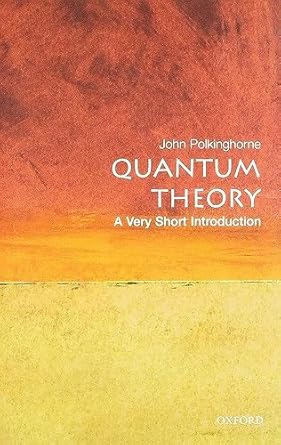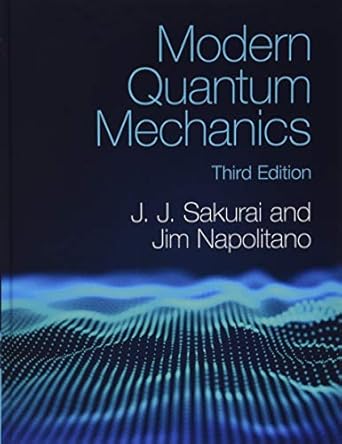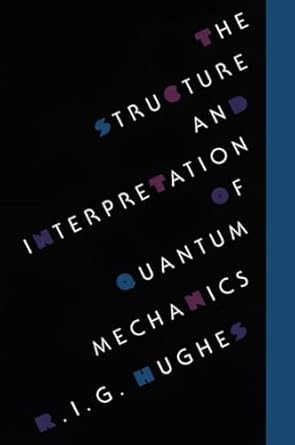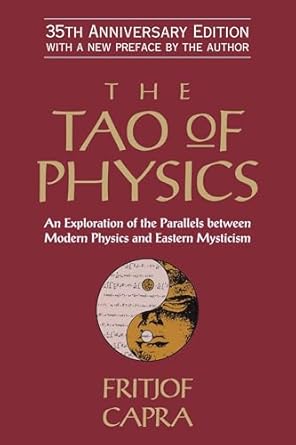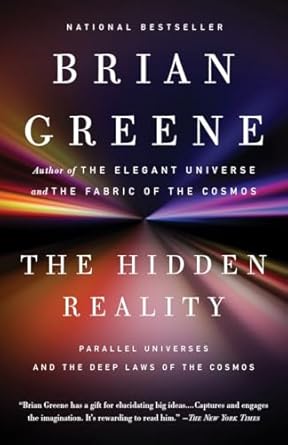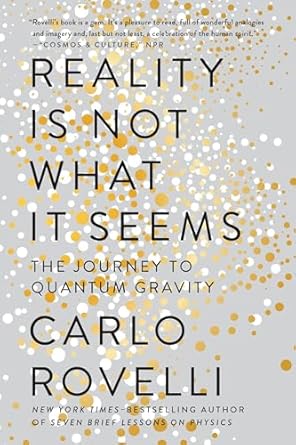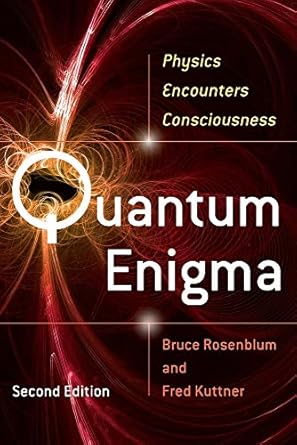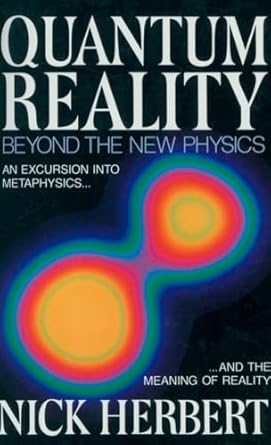Summary: This article lists 20 quantum physics books that cover the basics to advanced concepts, offering something for everyone interested in the mysteries of the universe. My top 3:
- In Search of Schrödinger's Cat by John Gribbin
- The Elegant Universe by Brian Greene
- Quantum Mechanics: The Theoretical Minimum by Leonard Susskind and Art Friedman
Quantum physics books take you deep into the mysteries of the universe, exploring the strange rules that govern the tiny world of particles. They help you understand how the universe works at its core, challenging our views on space, time, and matter. Whether you're a beginner or have some background knowledge, there’s something for everyone. These books not only explain the science behind quantum mechanics but also dive into the philosophical questions it raises, opening up a new way of thinking about reality and our understanding of it.
TOP 20: Best Quantum Physics Books
- In Search of Schrödinger's Cat by John Gribbin
- The Elegant Universe by Brian Greene
- Quantum Mechanics: The Theoretical Minimum by Leonard Susskind and Art Friedman
- Quantum Physics for Beginners by Carl L. Linder
- The Quantum Universe by Brian Cox and Jeff Forshaw
- Seven Brief Lessons on Physics by Carlo Rovelli
- The Fabric of the Cosmos by Brian Greene
- Quantum Computation and Quantum Information by Michael A. Nielsen and Isaac L. Chuang
- The Quantum World by Kenneth Womack
- Quantum: A Guide for the Perplexed by Jim Al-Khalili
- Principles of Quantum Mechanics by P.A.M. Dirac
- Quantum Mechanics: Concepts and Applications by Nouredine Zettili
- Quantum Theory: A Very Short Introduction by John Polkinghorne
- Modern Quantum Mechanics by J. J. Sakurai
- The Structure and Interpretation of Quantum Mechanics by R.I.G. Hughes
- The Tao of Physics by Fritjof Capra
- The Hidden Reality by Brian Greene
- Reality Is Not What It Seems by Carlo Rovelli
- The Quantum Enigma: Physics Encounters Consciousness by Bruce Rosenblum and Fred Kuttner
- Quantum Reality: Beyond the New Physics by Nick Herbert
1. In Search of Schrödinger's Cat
- Author: John Gribbin
- About: A fascinating exploration of quantum mechanics, focusing on the paradoxes that define quantum theory and their implications for understanding the universe.
- Style of writing: Accessible, narrative-driven, and engaging. Gribbin explains complex concepts in a way that is digestible for non-experts.
- Length: ~85,000 words
- Year written: 1984
- Emotional impact: The book leaves readers with a sense of awe and curiosity about the mysteries of quantum mechanics.
- Difficulty level: Beginner to Intermediate
- Why read it: Perfect for readers interested in a historical and conceptual overview of quantum mechanics with clear explanations of its most famous paradoxes.
2. The Elegant Universe
- Author: Brian Greene
- About: Greene provides an accessible introduction to string theory, explaining how it unifies quantum mechanics and general relativity.
- Style of writing: Clear, elegant, and intellectually stimulating with metaphors and analogies to help make abstract concepts more tangible.
- Length: ~130,000 words
- Year written: 1999
- Emotional impact: The book inspires wonder at the vastness and interconnectedness of the universe.
- Difficulty level: Intermediate
- Why read it: If you want to dive deeper into string theory and the quest for a “Theory of Everything,” Greene's writing makes a challenging subject approachable.
3. Quantum Mechanics: The Theoretical Minimum
- Author: Leonard Susskind, Art Friedman
- About: This book is a more mathematical and detailed introduction to quantum mechanics, focusing on the foundational principles.
- Style of writing: Analytical and clear, with a structured, almost textbook-like approach.
- Length: ~150,000 words
- Year written: 2014
- Emotional impact: It can be challenging but ultimately rewarding for those who want a deeper, more rigorous understanding.
- Difficulty level: Advanced Beginner to Intermediate
- Why read it: For readers who want to understand the core principles of quantum mechanics with mathematical rigor but at a more digestible level than formal textbooks.
4. Quantum Physics for Beginners
- Author: Carl L. Linder
- About: A beginner-friendly book that introduces the concepts of quantum physics in simple terms, perfect for those with no scientific background.
- Style of writing: Straightforward, beginner-oriented with examples and analogies.
- Length: ~45,000 words
- Year written: 2017
- Emotional impact: It offers an approachable and fun entry point into the subject without overwhelming readers.
- Difficulty level: Beginner
- Why read it: Ideal for those who want an easy-to-follow introduction to quantum physics without the technical jargon.
5. The Quantum Universe
- Author: Brian Cox, Jeff Forshaw
- About: This book explains the fundamentals of quantum mechanics through real-world examples, aiming to demystify the strange and complex phenomena of quantum physics.
- Style of writing: Accessible, conversational, and filled with engaging metaphors.
- Length: ~80,000 words
- Year written: 2011
- Emotional impact: It offers a sense of clarity and understanding, leaving readers with a new perspective on the universe.
- Difficulty level: Beginner to Intermediate
- Why read it: If you're curious about quantum physics and want to understand its essential concepts without diving too deep into the math, this is a great choice.
6. Seven Brief Lessons on Physics
- Author: Carlo Rovelli
- About: A short, poetic introduction to the fundamental concepts of physics, including quantum mechanics, relativity, and the nature of time.
- Style of writing: Elegant, philosophical, and succinct.
- Length: ~15,000 words
- Year written: 2014
- Emotional impact: The book leaves readers with a deep sense of the beauty of the universe, offering reflections on the nature of reality.
- Difficulty level: Beginner
- Why read it: This is a perfect starting point for anyone looking for a brief but profound overview of modern physics with a philosophical twist.
7. The Fabric of the Cosmos
- Author: Brian Greene
- About: This book explores the nature of space and time, including discussions on quantum mechanics and relativity, and their implications for our understanding of reality.
- Style of writing: Engaging, clear, and detailed, with both scientific depth and accessible explanations.
- Length: ~150,000 words
- Year written: 2004
- Emotional impact: A sense of wonder and awe as readers contemplate the fundamental nature of the universe.
- Difficulty level: Intermediate
- Why read it: For those interested in a thorough yet accessible exploration of the universe’s structure and the interplay of quantum mechanics and relativity.
8. Quantum Computation and Quantum Information
- Author: Michael A. Nielsen, Isaac L. Chuang
- About: A comprehensive introduction to quantum computing, covering the theory and practice of quantum information processing.
- Style of writing: Technical, textbook-like, with a focus on mathematical foundations.
- Length: ~250,000 words
- Year written: 2000
- Emotional impact: More intellectual than emotional, leaving readers with a deep appreciation for the potential of quantum computing.
- Difficulty level: Advanced
- Why read it: This is the go-to reference for anyone serious about understanding quantum computing, especially if you want to learn the mathematical and theoretical foundations.
9. The Quantum World
- Author: Kenneth Womack
- About: This book offers a comprehensive yet approachable introduction to the weird world of quantum mechanics.
- Style of writing: Informal and accessible, using stories and analogies to explain quantum concepts.
- Length: ~70,000 words
- Year written: 2004
- Emotional impact: Leaves readers intrigued by the complexities of quantum mechanics, with a sense of intellectual curiosity.
- Difficulty level: Beginner
- Why read it: A good choice for newcomers who want an accessible yet insightful explanation of the quantum world without getting bogged down in math.
10. Quantum: A Guide for the Perplexed
- Author: Jim Al-Khalili
- About: A straightforward guide to the most important principles of quantum physics, designed to clarify the confusing aspects of the subject.
- Style of writing: Clear, explanatory, and engaging for a general audience.
- Length: ~75,000 words
- Year written: 2003
- Emotional impact: It provides clarity and insight, helping readers to reconcile some of the more baffling aspects of quantum physics.
- Difficulty level: Beginner
- Why read it: Ideal for readers who are perplexed by quantum mechanics and want a clear, non-technical explanation of its mysteries.
11. Principles of Quantum Mechanics
- Author: P.A.M. Dirac
- About: This classic work by one of the pioneers of quantum mechanics outlines the mathematical framework of quantum theory. It's a fundamental textbook for those studying quantum mechanics at a deeper level.
- Style of writing: Highly technical and formal, with a rigorous mathematical approach to quantum mechanics.
- Length: ~200,000 words
- Year written: 1930
- Emotional impact: The book is more intellectual than emotional, providing a solid foundation for advanced students.
- Difficulty level: Advanced
- Why read it: Essential for serious students of quantum mechanics, especially for those pursuing academic or professional studies in physics. It’s a cornerstone of quantum theory, written by one of its founders.
12. Quantum Mechanics: Concepts and Applications
- Author: Nouredine Zettili
- About: This textbook offers a comprehensive introduction to quantum mechanics, with an emphasis on both the conceptual and practical aspects of the theory.
- Style of writing: Detailed and academic, with many worked examples and exercises.
- Length: ~350,000 words
- Year written: 2009
- Emotional impact: While it's not emotionally charged, it provides a sense of satisfaction for those who successfully work through the exercises and gain a deeper understanding.
- Difficulty level: Advanced
- Why read it: Ideal for students and professionals who need a rigorous, hands-on approach to learning quantum mechanics.
13. Quantum Theory: A Very Short Introduction
- Author: John Polkinghorne
- About: This book provides a concise and accessible introduction to quantum theory, discussing its philosophical implications and its role in modern physics.
- Style of writing: Succinct, clear, and thought-provoking, designed to give an overview of the topic in a small, digestible package.
- Length: ~30,000 words
- Year written: 2002
- Emotional impact: The book leaves a lasting impression with its philosophical reflections on the strange nature of quantum theory.
- Difficulty level: Beginner to Intermediate
- Why read it: Perfect for those looking for a quick yet thoughtful introduction to the philosophy and science of quantum mechanics without too much technical detail.
14. Modern Quantum Mechanics
- Author: J. J. Sakurai
- About: This is a widely used graduate-level textbook on quantum mechanics, offering an advanced treatment of the subject with a focus on the mathematical formalism and physical interpretations.
- Style of writing: Technical and rigorous, with a mathematical approach aimed at graduate students in physics.
- Length: ~400,000 words
- Year written: 1993
- Emotional impact: More intellectually demanding than emotionally resonant, this book provides a sense of accomplishment for students who complete it.
- Difficulty level: Advanced
- Why read it: A must-read for graduate students or those serious about delving deep into the formalism of quantum mechanics.
15. The Structure and Interpretation of Quantum Mechanics
- Author: R.I.G. Hughes
- About: This book examines the philosophical and interpretational aspects of quantum mechanics, offering a deep dive into the conceptual issues that arise when considering quantum theory.
- Style of writing: Philosophical, reflective, and focused on the interpretation of quantum mechanics rather than the mathematics.
- Length: ~110,000 words
- Year written: 1989
- Emotional impact: The book leaves readers with a greater appreciation of the conceptual challenges posed by quantum mechanics, particularly its paradoxical nature.
- Difficulty level: Advanced
- Why read it: Ideal for readers interested in the philosophical foundations of quantum mechanics, rather than just its mathematical description.
16. The Tao of Physics
- Author: Fritjof Capra
- About: This groundbreaking work draws parallels between quantum physics and Eastern philosophy, exploring how modern physics is beginning to align with ancient spiritual traditions.
- Style of writing: Philosophical and contemplative, with a poetic quality that connects scientific concepts with spiritual insights.
- Length: ~85,000 words
- Year written: 1975
- Emotional impact: The book has a profound emotional impact, encouraging readers to think deeply about the interconnectedness of science, philosophy, and spirituality.
- Difficulty level: Intermediate
- Why read it: For anyone curious about the intersection between science and spirituality, this book provides a thought-provoking perspective on the mystical aspects of quantum physics.
17. The Hidden Reality
- Author: Brian Greene
- About: Greene explores the concept of parallel universes and the multiverse, explaining how recent developments in physics suggest that multiple realities could exist.
- Style of writing: Accessible, narrative-driven, and highly engaging, with Greene’s signature ability to explain complex topics in a straightforward way.
- Length: ~120,000 words
- Year written: 2011
- Emotional impact: The book inspires awe and curiosity, with a sense of wonder about the nature of reality and our place in the cosmos.
- Difficulty level: Intermediate
- Why read it: If you're interested in the cutting-edge ideas of modern physics and the possibility of alternate universes, this book provides an excellent, thought-provoking introduction.
18. Reality Is Not What It Seems
- Author: Carlo Rovelli
- About: Rovelli presents his interpretation of quantum mechanics and the nature of reality, focusing on the concept of quantum gravity and the relational view of the universe.
- Style of writing: Philosophical, poetic, and accessible, with Rovelli’s trademark clarity and insight into the nature of reality.
- Length: ~70,000 words
- Year written: 2014
- Emotional impact: The book leaves readers questioning their perceptions of reality and reflecting on the nature of time and space.
- Difficulty level: Intermediate
- Why read it: Perfect for readers interested in exploring a different take on quantum mechanics and the nature of the universe, especially if you're intrigued by the relationship between physics and philosophy.
19. The Quantum Enigma: Physics Encounters Consciousness
- Author: Bruce Rosenblum, Fred Kuttner
- About: This book delves into the mystery of quantum mechanics and its connection to consciousness, exploring how the observer may play a crucial role in the behavior of quantum systems.
- Style of writing: Clear, accessible, and thought-provoking, with a focus on the philosophical and metaphysical questions raised by quantum mechanics.
- Length: ~85,000 words
- Year written: 2006
- Emotional impact: It leaves readers with a sense of wonder about the nature of reality and our role in observing it.
- Difficulty level: Intermediate
- Why read it: Ideal for those interested in the intersection of quantum mechanics and consciousness, and who want to explore the mysteries of the “observer effect” in quantum theory.
20. Quantum Reality: Beyond the New Physics
- Author: Nick Herbert
- About: This book provides a broad overview of the different interpretations of quantum mechanics, offering an accessible introduction to various ideas about quantum reality.
- Style of writing: Engaging, accessible, and approachable, with a focus on explaining abstract concepts in a clear and understandable way.
- Length: ~70,000 words
- Year written: 1985
- Emotional impact: The book sparks curiosity and intrigue about the many ways to interpret quantum mechanics.
- Difficulty level: Intermediate
- Why read it: For anyone interested in exploring the different interpretations of quantum mechanics and understanding the various philosophical perspectives on the nature of quantum reality.
Conclusion
In conclusion, I think exploring quantum physics through books is a fascinating way to uncover the universe's mysteries. If you're just starting out, In Search of Schrödinger's Cat is a great introduction to quantum mechanics. For a deeper dive, The Elegant Universe connects quantum mechanics with string theory, expanding your understanding of modern physics. And for those ready to explore the concepts and math behind it, Quantum Mechanics: The Theoretical Minimum offers a solid foundation. These three books are, in my opinion, the perfect starting point for anyone curious about the science that shapes our reality.

